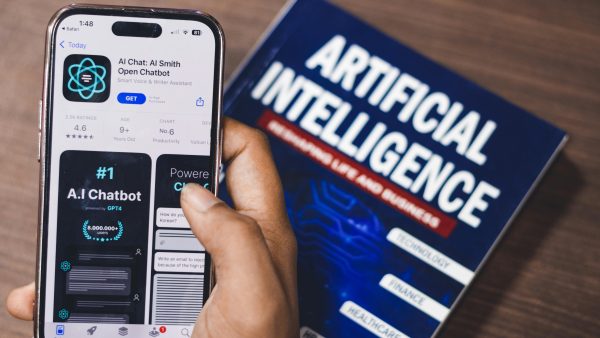Once upon a time there was AI
During the 20th century it advanced in the field of computing, but also in the field of marketing and business, where automatic systems for information processing and natural language processing began to be developed.
Even so, for ordinary mortals, AI was a great unknown until very recently and, of course, few thought it would form part of their daily tasks such as looking up recipes or helping their children with their homework.
Although I was not entirely in that group of ‘AI-distant’ people, I confess that I was surprised when reading a story by Roald Dahl, called ‘The Great Automatic Grammatizer’, I discovered that as early as 1958 this author described a generative AI machine, in the purest Chat GPT style, to write narrative texts.
In his story, an engineer with a vocation for writing, eager for recognition rather than fortune, invents a machine that produces books in the same way that artificial intelligence does.
His idea was ‘simple’. To put a series of inputs or variables into this device to introduce the text: the crux of the story, the characters, the locations, the times… And, once this was done, to mix it all up, like the best barman, obtaining different stories from that mixer, all of them coherent and always different from each other.
Reading this text, and knowing other works by the author, I realised that I was in the presence of another Jules Verne of history, a visionary with a privileged mind, capable of anticipating the future. In the presence of such geniuses, I sometimes can’t help thinking that somehow they got hold of the DeLorean and travelled to the future with Marty McFly.
More omens of AI in books
Anyway, returning to the topic at hand of AI, and given my fixation with literature, I was curious to investigate whether this was an isolated case or whether there had been more omens of AI in ‘ancient’ books, and surprisingly (or not) I discovered that Dahl was not the only one.
Examples
In 1950, Isaac Asimov wrote ‘I, Robot’ and his well-known laws of robotics to supposedly guarantee coexistence between people and robots, that is, between humanity and artificial intelligence. But this coexistence, as we know, was not without risk. You will not deny that this danger and fear of the evolution of technology is present in many current debates, 75 years later.
I’m sure you are also familiar with Stanley Kubrick’s film ‘2001: A Space Odyssey’, based on the book ‘The Sentinel’, which Arthur C. Clark wrote in 1948. Kubrick had the author himself as co-writer, who for this purpose, wrote his novel: ‘2001: A Space Odyssey (1968)’.
Arthur C. Clark was, in addition to being a writer, a mathematician and a physicist. In 2023, the BBC rescued a video recorded in 1964, in which the British author showed his vision of the future and the evolution of technology, anticipating applications of the latter such as teleworking or even telemedicine, and of course, artificial intelligence.
The video is not to be missed, and I invite you to search for it and watch it in its entirety, but here are some of the phrases that have made the biggest impact on me:
‘The most intelligent inhabitants of the world of the future will be neither humans nor monkeys, they will be machines: the descendants of today’s computers. Today’s electronic brains are stupid, but this will not be the case in another generation. They will start to think and, eventually, they will completely surpass their creators. Is this depressing? I don’t see why. We surpassed the Neanderthals and consider ourselves to be an improvement. I think we should see it as a privilege: one of the first steps towards better things. (Arthur C. Clark, 1964)
As a final reflection, if much of what were once science fiction stories, nonsense to most, are today a verifiable reality, what will the future of technology hold for us, now that its potential is no longer ‘a tall tale’? Let’s imagine then… and we’ll see.











